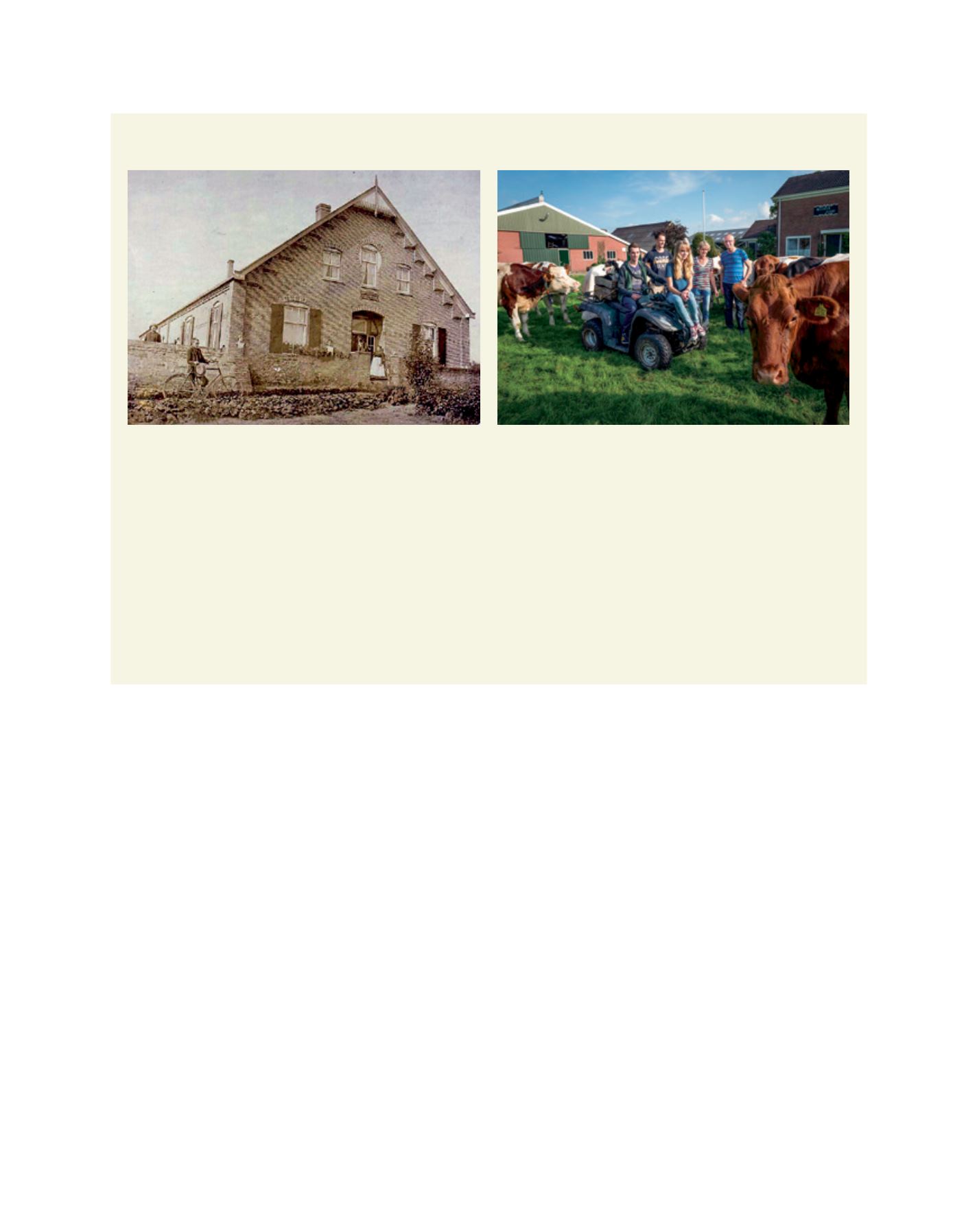

[
] 172
financial goals into account when attempting to meet the
expectations of various stakeholders, including the family,
the business and owners. Sharma proposes that family firms
can overcome low levels in one of the two dimensions in the
short term. However, in the long term, family firms need to
achieve positive scores in both dimensions.
Research has identified four typical strategies for family
farms to overcome difficult economic times: diversifying
activities, maximizing debt to expand the business or to
increase income, sacrificing family needs, and accepting less
income but retaining something else.
3
the bottom line is that
economic goals are not always prioritized.
What does it take to survive as a family farm? John Ward’s
seminal study on family firm succession
4
is still the most
influential to put a number to the rate of success in intrafamily
business succession. The 30/13/3 statistic describes that 30
per cent of firms survive through the second generation, 13
per cent survive the third generation, and only 3 per cent
survive beyond that. This gloomy picture has led to a focus
on the fundamental ‘problem’ of succession in family firms
which stems from family relationships complicating business
activity and a talent pool limited to a few family members.
However, more recent research has shown that continued
family control can be efficient when families make a positive
contribution to their firms. Key in this success is a family that
drives new entrepreneurial activity and has led to the defini-
tion of transgenerational entrepreneurship as “the processes
through which a family uses and develops entrepreneurial
mindsets and family-influenced resources and capabili-
ties to create new streams of entrepreneurial, financial and
social value across generations.”
5
Insights into this process
are important in order to gain a better understanding of the
succession process in family farms. Success of the family farm
is not only important for the family business itself, but also
for society as a whole. As mentioned above, family farmers are
a key resource in the worldwide ambition for food security
and food quality. But next to that, family farms have a strong
connection with local communities, and as a result they are a
main driver of the economy in rural areas and supply jobs for
many people. In addition, there is a growing group of family
farms that can be characterized by portfolio entrepreneurship
where multiple activities are developed.
What makes family firms successful in realizing transgen-
erational entrepreneurship? The focus on entrepreneurship
stems from the idea that it is not enough to simply pass on
the business to the next generation. Instead, families have
to create new streams of value through the exploration of
new ways of doing things and, at the same time, through
Case study: relocating to grow the business
Leon Jeuken and his wife Tiny, both 52 years old, have a dairy farm in
Winsum in the northern part of the Netherlands. They have three children:
Erwin (19), Harry (17) and Marita (15). Erwin attends the secondary
agricultural school and helps out on the farm as much as possible.
The history of this family business dates back 12 generations to
before the year 1600. Even then one of Jeuken’s ancestors was active
as a farmer. Later, some ancestors farmed in Germany and some in
three more places in the Netherlands.
Leon Jeuken grew up in Boven Leeuwen, where his parents had a mixed
farm with fruit farming, pigs and dairy cows. Later his father specialized in
dairy farming. When Jeuken was in his early twenties and working at the
farm, he discussed its future with his parents. The young entrepreneur
was eager to continue with the farm, preferably in a location with space
for business development such as the nothern part of the Netherlands.
“In Boven Leeuwen we didn’t have many opportunities,” said Jeuken.
“The farm was not modern enough, the ground badly parcelled out. One
day, in 1985, my father said: ‘We’ll sell the farm and go to the north of
the Netherlands.’ I had never expected that my parents were willing to
take that step, more than 200 kilometres to the north. But of course it
was only in the interest of our family.”
Since 1987 the Jeuken family has got on well in Winsum, where they
bought a farm which grew increasingly larger. Currently, 120 milk cows
and 80 young cows are kept. “We are planning to grow to 140 cows,”
said Jeuken. “From 2015 onwards we’ll have the opportunity for that,
when the milk quota will disappear.”
Jeuken says that 140 cows are an excellent basis for the future: “I
see no reason to grow bigger. Then you go to work with foreign staff
and the charm of the family-run business is gone. We stay in command
and can make our own choices. That’s worth a lot. And at this size it is
also possible for a successor to take over the company.”
Leon Jeuken grew up in Boven Leeuwen, where his parents had a mixed farm. The history of the family business dates back 12 generations
Image: Geert Job Sevink
Image: Family Jeuken
D
eep
R
oots
















